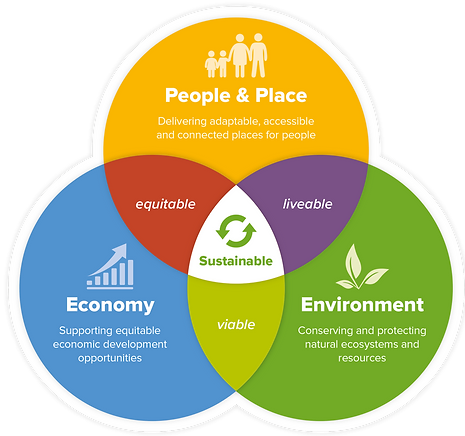Sustainability
As a result of the Industrial Revolution, the increase in the amount of energy required by the rapidly developing industry has led to the use of non-renewable natural resources such as oil and coal. The fact that industry has become the dominant sector has caused the addition of new ones rapidly and on a larger scale to the environmental degradation created by the agricultural economy of societies. Besides causing air, water, and soil pollution, rapid industrialization and its consequences such as modern urbanization and rapid population have caused a decrease in biodiversity and resulted in problems like soil loss and desertification to reach serious levels.
All creatures are part of an ecosystem where they are in interaction with each other and with other non-living things. Whole parts of an ecosystem are linked in an intricate way. Therefore, in case a part of the ecosystem is destroyed or damaged, consequences in parallel with this situation will emerge in other parts of the ecosystem. This destructive impact of human beings on the natural environment has become override nature's speed of self-healing, and the need to act without disturbing the balance of the ecosystem has arisen.
Because of all these reasons, all enterprises, primarily the industrial ones which cause the greatest negative impact on the ecosystem, should adopt the philosophy of sustainability and continue their efforts to implement practices in this direction.

